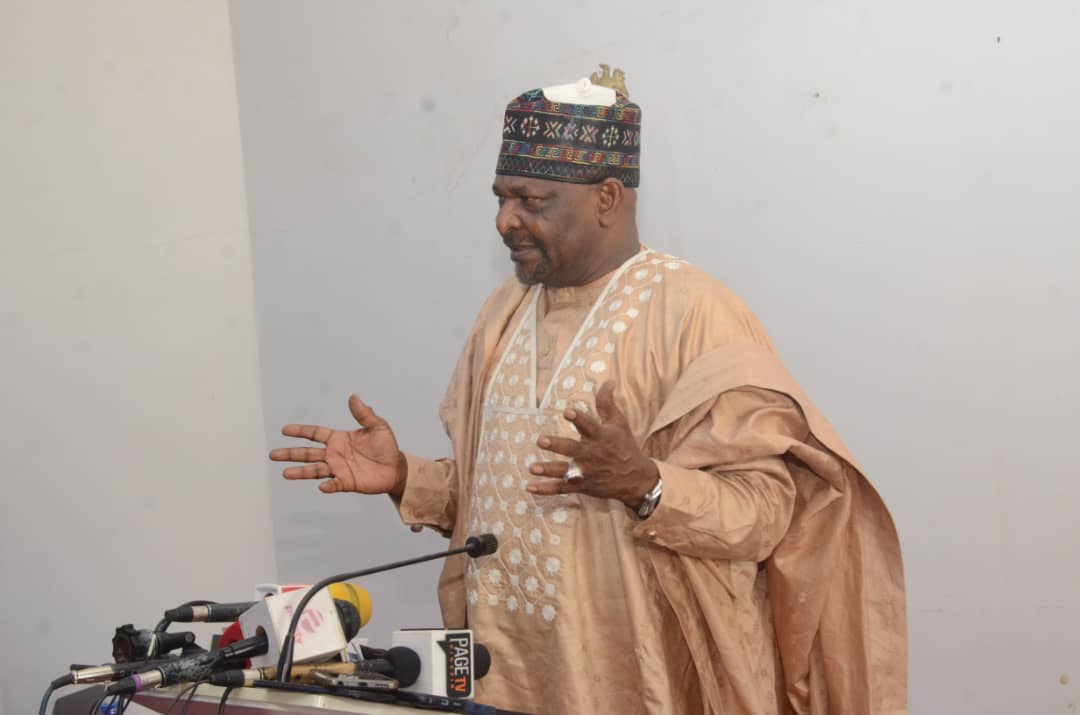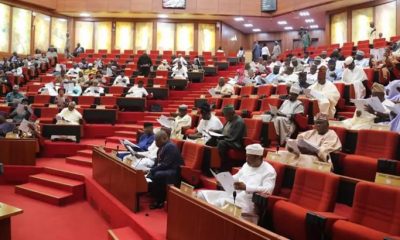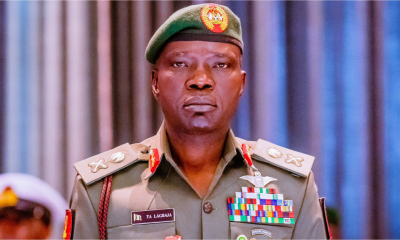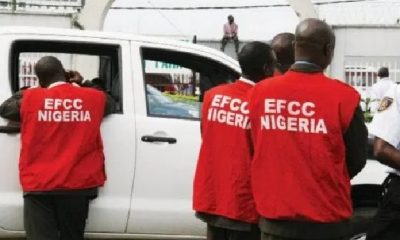Opinion
Scandal in the Senate

By Obi Nwakanma
Who oversees the overseer? This is the great question this week as Nigerians once again contemplate their sad lot, and are once again, confronted by a terrible scandal in the senate. The scandal of “budget padding” and misappropriations, whose bottoms came off with Senator Abdul Ningi, the ranking PDP Senator from Bauchi, blowing the whistle.

Senator Ningi had laid bare the dreary details of legislative malfeasance in the interview he granted to the Hausa Language broadcast of the BBC, which aired it clearly to its “Northern” audience. Senator Sumaila Kawu, the senator representing Kano state, later posted the transcript of Ningi’s interview on the website of the Northern Senators Forum. N3.7 Trillion, the senator claimed, was patched on to the original budget passed by the Senate. Clarifying his stand on the budget issue, Senator Ningi said, “ I have never said as alleged that Nigeria under Bola Tinubu runs two concurrent budgets. What I have said is that N3.7 million cannot be traced to any project in the budget.”
There was no “nexus” to the approbations, that links the figures to “money, project and location,” in the budget.Then all hell broke loose. On Monday’s plenary session of the senate, Senator Solomon Olamilekan Adeola, the senator from Ogun, who is also chairman of the Senate Appropriation Committee, came whining at the senate, “my privilege has been breached!” He declared, sourly. But wait a minute,what privilege? The privilege to conduct a coven of secret dealings in the senate that would include, or amount to legislative buggery of Nigerians? That is the real question.It is still notquite clear what stung the senators most. Was it that senator Ningi broke the omerta rules of the current senate? Was it that he spoke about things not to be spoken publicly? Was it that he revealed too much? Was it that he untied the bag of winds that have held the whirlwind that now blows across Nigeria? Was it that, in the bald words of Mr. Oshiomole, former National Labour leader, now a senator in a very corrupt senate, Ningi’s interview had “stripped us all naked?”
Senator Adeola’s cry of a breach of privilege, and his subsequent attempt to deconstruct the two parts of the Appropriation bill in order to explain the statutory gaps was at best obfuscatory. What is nonetheless obvious in all the unfolding dramais, that the Nigerian Senate was utterly embarrassed, and clearly unprepared for the salvo fired by one of their own. I did watch the senate proceedings on TV. If it was not already clear to me that the Nigerian senate is an assemblage of mediocre parliamentarians, the images on TV drove it even more forcefully home. The conduct of the business of the Nigerian senate seemed childish and undignified. Senators sat at various stages of boredom. People moved up and down the aisle of the Chambers even as the Senate was in session. You would think that once the senate was seated, it would be undignified for senators to walk up and down their seats.
Senators were even answering calls on their cellphones, even as the senate session was in progress. This is as thoughtless and it should be anathema. You would think that senators should turn off their phones, and redirect all phonecalls to their Legislative aides, until the end of their sittings once the senate was in session. You would think that the Chamber of the Senate will be cleared and reserved only for senators and their Legislative Assistants, sitting just right behind them, with the Senate Clerk and Sergeant-at-Arms, sitting at the bridge-table in the center that separates the opposition from the majority party in the Assembly. The rest in the gallery. But as I’ve said, the disorder is shameful. Perhaps it has to do with the architecture, and the sitting design of the senate. It should be a sitting in the rounds, with space for the senators and their Assistants. It should not be like a court with the President of Senate talking down on his peers.
The President of the Senate is not a magister. He is equal to his peers, and has the same single vote. He is just primus inter pares in the senate of the republic. The proscenium of the senate must rise to meet him, as is the case with all designs of Parliamentary buildings, not separate him from his peers. This primary design flaw in the Nigerian National and State Houses of Assembly continue to perpetuate the feudal subtext of Nigeria’s democratic institutions.
But Nigeria is a republic where everyone is equal, not a monarchical or feudal state where the power of the state resides, and is concentrated in the individual, rather than in the institution. That also seems to be what Senator Ningi was alluding to, when he referred to Senator Akpabio’s pay and emoluments, which now seems to be shrouded in secrecy, even to a senator of the republic. By tradition, the senate president should earn the exact pay of his fellow senators, no more no less. He should have only minor allowances granted to the office, which should never be much more than 10% of his take home. The rule of law begins with the allowances we grant to public offices, which should be transparent. The president of the senate is a public servant, and his pay should be made public, and his emoluments must be measured.It is shameful and heartbreaking that in this particular period of tribulations for Nigerians, those they elected into the parliament of the land are defrauding them, through all manners of financial scams played through the budget.
The National Assembly has the power of the purse. This power is clearly established in Chapter Five, Section 80 of the Nigerian Constitution. So, for those who do not know yet, let me make it as simple as possible. The president of Nigeria is not in charge of Nigeria’s money. He is only in charge of spending it according to instructions given to him by the National Assembly.
The Federal Treasury is in the care of the National Assembly, not the president. Unless the National Assembly authorizes the President to spend money from what is called the “Consolidated Fund,” of the Federation, he cannot. The president cannot spend money that has not been approved for him to spend. If he does, he would be investigated, impeached, and possibly sent to jail for misuse of his presidential powers.
The only time the president can spend public money, or authorize the withdrawal of money from the Federal Funds is if the National Assembly had not yet passed the Appropriation bill for the year. Then the President could authorize funds, equal to the same amount approved for the monthly running of the government the previous year, to be withdrawn from the Federal Treasury until the Appropriation bill is passed. The president is obligated by law to report all revenues accrued, including from taxes and tariffs, to government, and cause same to be paid into the single consolidated fund of the federation. If he fails to do that, he would be investigated, and if just cause arises, be impeached, and possibly prosecuted. The president cannot impose tax on the citizens. The only body that can authorize any tax on citizens is the National or State Assemblies. Not the president, not the governors.
What the president or the governor does is to propose taxes, seek for the passing of the tax act either as a separate bill, or under the appropriation bill, collect and execute the tax laws as approved by either the National or the State Assemblies. Every year, the president as head of the Executive Branch proposes a budget for the running of the federal government and funding of federal mandates. Those federal mandates are contained in the section of the constitution called the Exclusive list, and the reserve list. The federal government in other words cannot propose funds for projects outside these areas. That would be exceeding the federal mandate and breaching the laws of the federation. This proposal is brought before the National Assembly which debates it, and appropriates funds based on their own research to these federal budget items.

























